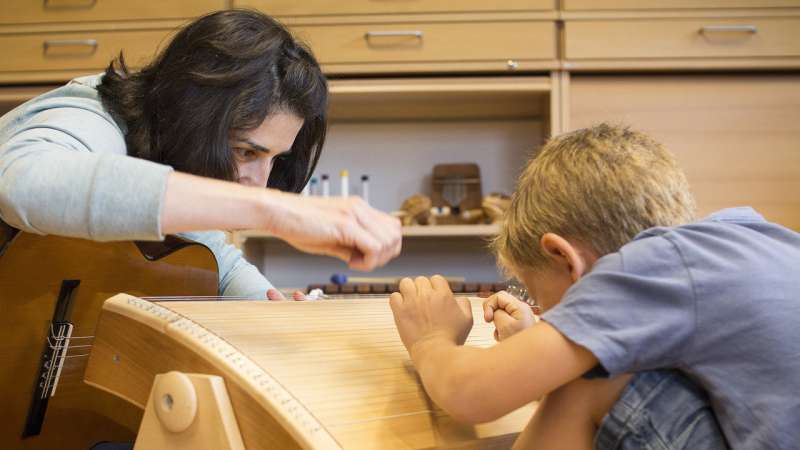Relational factors in music therapy can contribute to positive outcome for children with autism

It might not surprise that good relationships create good outcomes, as meaningful relational experiences are crucial to all of us in our everyday life. However, the development of a relationship with a child with autism may be disrupted due to the level of symptoms interfering with the typical development of emotional and social abilities.
In a new study, researchers from GAMUT, Uni Research Health and University of Bergen, could show that the quality of the therapeutic relationship predicts generalized changes in social skills in children diagnosed with an autism spectrum condition (ASC).
This predictor study included 48 children between 4 and 7 years who received improvisational music therapy weekly over a period of 5 months. Outcomes related to the child's social skills were measured before and after treatment. Based on session videos the researchers assessed the relationship between the child and the therapist.
Findings of this study show a significant symptom reduction, if a relationship was developed in which the therapist was emotionally and musically attuned to the child's expressions. Especially an improvement of communication and language skills was associated with the quality of the therapeutic relationship.
Attunement as mechanism of change
Attunement processes between humans are particularly described for early interactions between infants and their caregivers. It has been suggested that the caregiver's capability to attune and synchronize to the infant's movements, rhythms, and affects influences attachment and the development of social understanding. Within these attuned musical exchanges, the infant experiences being experienced and understood emotionally.
– In music therapy with children with autism, therapists try to transfer principles from early interaction processes by making music that is specifically tailored to the child's sounds, movements, postures, and affect. This should allow for moments of synchronization and attunement, Karin Mössler at Uni Research explains. Mössler is the principal investigator of the study.
Children with childhood autism
Focusing on musical and emotional attunement might be especially important for children with low functioning childhood autism as it might be specifically powerful when working with sensory processing, affect regulation, or deviations related to the child's movements all of which can be crucially affected in these children. Even though the primary results of a related study (TIME-A uni.no/en/uni-health/gamut/tri … -with-autism-time-a/) investigating the effects of music therapy with children with autism, do not show that music therapy works better than other therapies, subgroup analysis identified that children with childhood autism or coexisting intellectual disability improve to a greater extend from music therapy than children with another autism diagnosis.
Stereotypical behavior as resource
In this sense, special focus should be given to intervention strategies fostering relationship through musical and emotional attunement. These strategies should help therapists but also parents of children with ASC to cope with the child's symptom level by, for example, using its repetitive or stereotype movements and affective expressions as a resource and starting point for attunement.
More information: Karin Mössler et al. The Therapeutic Relationship as Predictor of Change in Music Therapy with Young Children with Autism Spectrum Disorder, Journal of Autism and Developmental Disorders (2017). DOI: 10.1007/s10803-017-3306-y




















